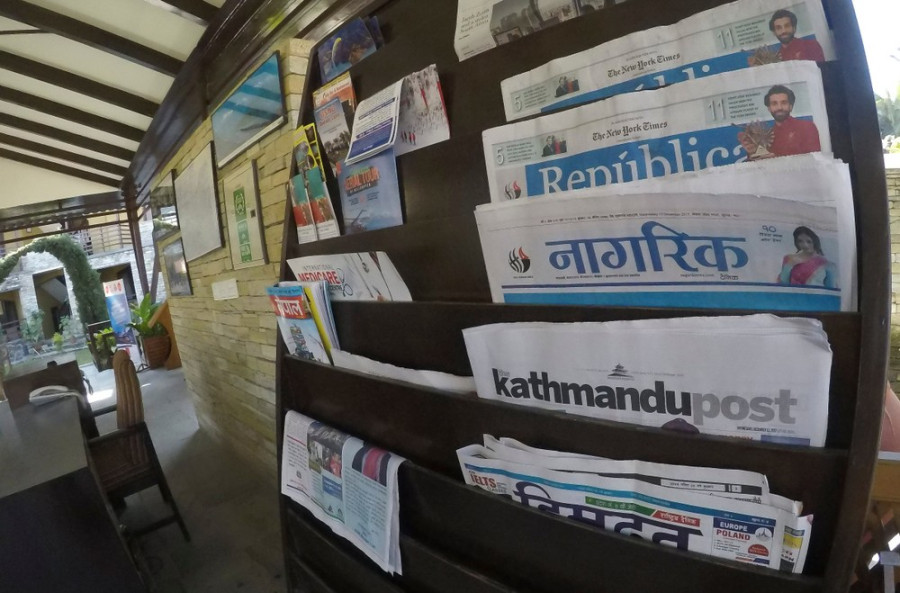Editorial
Requiring aspiring journalists to take an exam is meaningless
The spread of information and disinformation online cannot be curtailed by such a measure.
At a time when the government was already facing criticism from the press and the larger public for attempting to pass a draconian Media Council Bill, it has attempted to insert a clause in the proposed law that has been called unnecessary. The planned amendment will require aspiring editors and reporters to take an exam to be allowed to join the profession. But it is not convincing that such a move will improve journalism. Most democracies do not have such exams and licences in place, and it is a wonder what type of state the government is trying to emulate. The government needs to scrap the proposed amendment; information dissemination is guaranteed, under the right to free expression, by the constitution, and it can be exercised by anybody.
The idea of making journalists sit for a licensing exam is not new. In Nepal, it was first floated about four years ago when a task force formed by Press Council Nepal decided that it was a good idea. Criticised by the Federation of Nepali Journalists as an infringement upon the journalists’ right to expression, the recommendations of the task force went unused, until now. The practice is not a popular one across the world either. There are only a handful of countries in the world that prescribe any tests or hard requirements for their journalists, and the ones that do have it have not seen any discernible change or improvement. In fact, in Italy, where journalists are required to go through an 18-month internship followed by written and oral tests, newsrooms have been ignoring the cumbersome procedure altogether—without any perceived deterioration in quality.
The government’s recent move comes after a section of the public began complaining about the penetration and proliferation of unreliable sources of information through social media and the internet. But a licensing exam will hardly be able to block the spread of ‘fake news’. It is the very nature of social media that allows it to be such a potent medium to spread information and disinformation. In this era, a free and responsible press is all the more important to show the public what factual information and quality journalism can be. Were a journalism licence to be put in place, it would still not stop any individual or group from spreading news online—journalism or dissemination does not belong exclusively to media houses anymore.
Moreover, the examination would have to be carried out by a regulatory agency. Who should be in charge of this? If journalists make up the body, it will not be any better at enforcing a code of conduct than media houses doing so independently. If the government is the entity in charge, it would have the potential to misuse and abuse its power to suppress factual and critical news. No matter how the matter is looked at, a licensing body will not improve the quality of journalism. However, there has been an issue of media entities working without codes of ethics and conduct. The media has an equal responsibility to adhere to high standards so that the public does not have reason to complain about the quality of the news. Such self-improvement is especially important in times like these, where the government may take any chance to curtail press freedom.
***
What do you think?
Dear reader, we’d like to hear from you. We regularly publish letters to the editor on contemporary issues or direct responses to something the Post has recently published. Please send your letters to [email protected] with "Letter to the Editor" in the subject line. Please include your name, location, and a contact address so one of our editors can reach out to you.




 14.24°C Kathmandu
14.24°C Kathmandu














